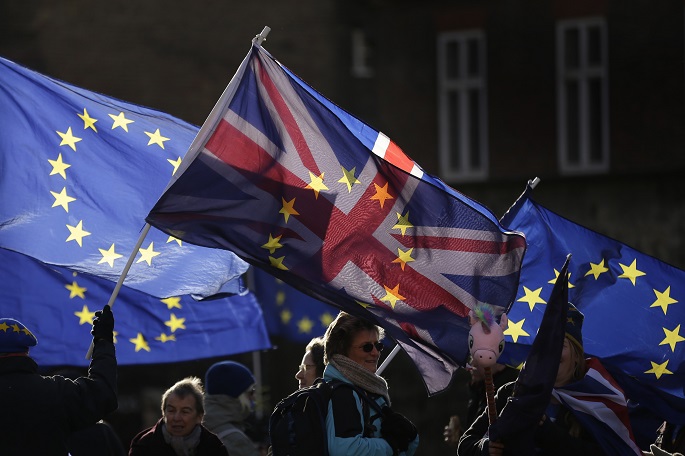British economy in doldrums as Brexit effect
Published : 25 May 2018, 22:56
The British economy is now growing at the slowest rate for six years, with revised first quarter figures hit by uncertainty over Brexit and bad weather.
Figures from the Office of National Statistics (ONS) released on Friday show growth rate at 0.1 percent in the first quarter, down from the 0.4 percent quarter-on-quarter growth seen at the end of 2017.
While exceptional bad weather was responsible for reduction in activity in some sectors, such as construction and tourism, it was also behind a boost in others, for instance power supply.
Services output growth slowed to 0.3 percent, particularly hit by a 0.1 percent quarter on quarter contraction in distribution, hotels and catering.
Friday's data was the first revision of first quarter data, and showed that construction output had slumped by 2.7 percent over the quarter.
"The construction sector clearly took a substantial hit from the severe weather at the end of February and first half of March, but the weakness in the sector looks to have run deeper as output also fell sharply in January," said Howard Archer, chief economic adviser to economic analysts EY ITEM Club.
"The extent of the slowdown suggests there was an underlying loss of momentum in economic activity," Archer told Xinhua.
Growth over the year to the end of March slowed to 1.2 percent, following a declining trend throughout 2018 which has seen annualized growth fall from 2.1 percent in the first quarter of 2017, to 1.8 percent in the third and 1.4 percent in the fourth.
The manufacturing sector has benefitted from weak sterling, a result of the markets devaluing the pound in the wake of the Brexit referendum vote in June 2016, but the strong stimulus this gave to exports now appears to be waning.
Manufacturing output growth slowed to 0.2 percent quarter-on-quarter after robust expansion through the second half of 2017.
"It may be that the boost to the manufacturing sector from a competitive pound and robust global growth has waned," said Archer.
"The pound has firmed overall and there are signs that economic activity has come off its highs in some overseas markets, notably the eurozone."
Uncertainties over the Brexit outcome are also weighing on consumers and on businesses, but some resolution of these uncertainties as further exit details are agreed and revealed will give a clearer guidance for decision-makers over the rest of this year.
"The agreement on a Brexit transition arrangement should be supportive to business investment, although the upside is likely to be limited by ongoing uncertainties over the long-term future trade relationship between Britain and the European Union," said Archer.
But he warned that there was "also a downside risk" to business investment if ratification of the transition arrangement becomes problematical.
Lee Hopley, chief economist at EEF, the manufacturers' representative organization, said that "the forces of Brexit uncertainty" as well as indications of weaker consumer spending and weakening growth in export markets meant that it was "hard to see what will spur some renewed momentum in the economy over the next couple of quarters."


